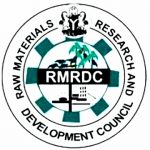Producers of non-alcoholic drinks in Nigeria stand to lose about N1.9trillion in sales revenue between 2022 and 2025 if the Federal Government goes ahead with the proposed re-introduction of excise duty collection on the products.
The Manufacturers Association of Nigeria (MAN) disclosed this on Tuesday at the MMS Business Discourse with the theme: “X-raying the Proposed Excise Duty Regime for Carbonated Beverages in a Recovering Economy”
Chairman of the Fruit Juice Producers branch of MAN, Fred Chiazor, noted that besides the expected losses of about 39.5% owing to imposition of the new taxes, the policy will also impact negatively on jobs and supply chain businesses.
Consequently, the group has called for a suspension of the fiscal policy, even as it noted that the proposed excise duty collection will shrink the sector’s contribution to the GDP which is currently represents 35% of manufacturing.
“Government could lose up to N197billion in Value Added Tax (VAT), EIT fund and Collective Investment Trust (CIT) revenues occasioned by the drop in industry performance,” Chiazor said.
He asked the Government to rather provide palliatives and tax rebate instead of introducing additional levies owing to the current tough economic situation in the country.
For his part, the Comptroller-General of Nigeria Customs Service (NCS), Col. Hammed Ali (Rtd) believes that with the wide production and consumption of carbonated non-alcoholic drinks locally, there is a strong indication that the policy will trigger a significant revenue rise from excise duty when brought under excise control.
Ali, who was represented by the Comptroller, Lagos Industrial Command, Monica Shaahu, noted that bringing the carbonated non-alcoholic and alcoholic drinks under excise control will cushion the effects of the overdependence on oil import duty revenue, caused by global economic response to COVID-19.
In his words: “Away from the revenue view, the health and environment hazards presented by the production and consumption of carbonated drinks will be ameliorated bringing them under regulation and control. Excise traders under the new regime are likely to think of exportation to enjoy the duty free delivery incentives from the federal government thereby attract more Forex to the economy.”
“Given the lesson learnt from the impact of Covid 19 and its effects; many nations of the world have re-strategized their economic system in a more diversified way to achieve a robust, stable and prosperous economy with a long term benefit. Hence; bringing carbonated drinks under Excise control this time will raise government revenue, reduce health hazards and align Nigeria with harmonization of the ECOWAS member – states.
“For instance; Coca Cola the largest conglomerate which produces carbonated drinks pay Excise Duty in other host countries apart from Nigeria. This is unhealthy economy advantage for their products coming from other nearby countries.”
The President of Water Producers Association of Nigeria (WAPAN), Mackson Odiri Egberi, however, argued that the move to collect excise duty on water would see the product go beyond the reach of the ordinary citizens.
Mackson noted that the chemicals used by water producers as well as the sachets are imported and subjected to import duty payments, adding that excise duty collection would be an additional burden on producers that would force them to shut down or compromise on their standards.
A member of the Nigerian Economic Summit Group (NESG), Dr. Ikenna Nwosu proposed that the initiative be shelved for a minimum of one year to allow for robust discourse with industry stakeholders on the possible gains and shortcomings of the policy.

He said the one year waiting period would also enable the nation’s economy, especially the manufacturing sector to recover from the debilitating effects of the COVID-19 pandemic.
“Most global economic bodies including the International Monetary Fund (IMF) and World Trade Organization (WTO) have been advising governments to suspend taxes for one year as part of efforts to support their businesses amid the global fiscal challenges.” Dr. Nwosu argued.









Comment here